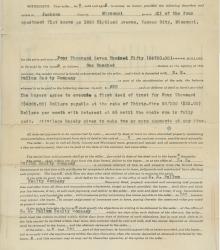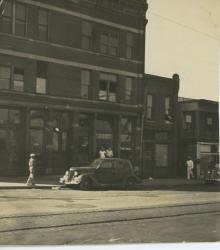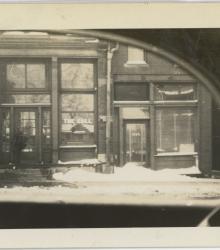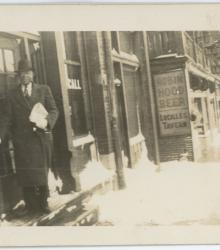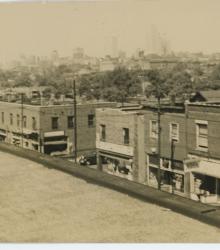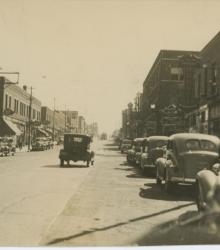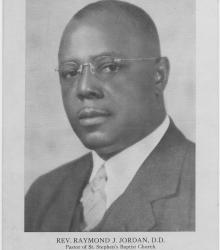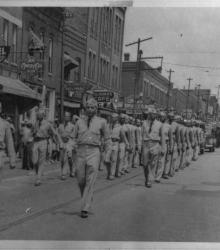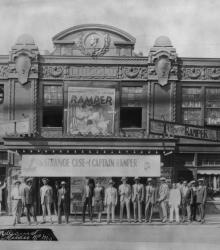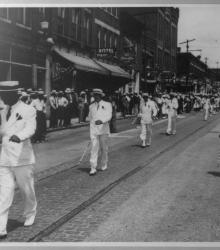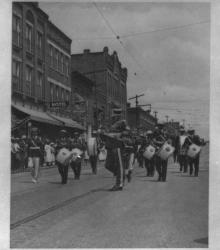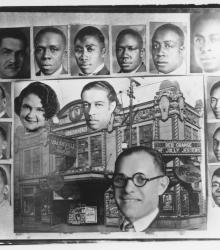Contract for the sale of 1823 Highland Avenue, which was to become the headquarters of Musician's Protective Union No. 627. The property was sold for $4750.
18th & Vine
Undated photograph of the exterior of The Call newspaper's office on 18th Street, including the surrounding streetscape.
Photograph of the exterior of the Kansas City Call building that appears to have been taken from inside an automobile.
Photograph of Chester A. Franklin standing by the door of the Kansas City Call Building. The vantage point faces west on the south side of 18th Street with Lucille's Tavern in the background.
Cityscape photograph of 18th Street from atop the Kansas City Call Building, looking northwest with downtown Kansas City in the background.
Photograph looking east on 18th Street from between The Paseo and Vine Street.
Portrait of St. Stephen's Baptist Church pastor Rev. Raymond J. Jordan, whose home and work addresses and phone numbers are listed. Jordan also served as president of the General Baptist Convention of Missouri and Kansas.
Circa 1938 photograph of a military unit marching west in the Black Elks parade at 18th Street and The Paseo. The Street Hotel, Country Club Beer, Elnora's Cafe, and Crown Drug Co. are pictured in background. Source: Black Economic Union.
1927 photograph of the Lincoln Theatre exterior, with staff posed in front. Advertisements for "The Strange Case of Captain Ramper" are displayed on the front of the theatre. The Lincoln Theatre was once located at the northwest corner of 18th Street and Lydia Avenue in Kansas City, Missouri. Source: Lawrence Denton.
Circa 1938 photograph of a men marching west in the Black Elks parade at 18th Street and The Paseo. The Street Hotel, Country Club Beer, Elnora's Cafe, and Crown Drug Co. are pictured in background. Source: Black Economic Union.
Circa 1938 photograph of the Black Elks band marching west at 18th Street and The Paseo. Street’s Hotel and Crown Drug Co. are pictured in background. Source: Black Economic Union.
Composite of staff (heads only) of Lincoln Theatre, with building in background, 1926. The Lincoln Theatre was once located at the northwest corner of 18th Street and Lydia Avenue in Kansas City, Missouri. Source: Lawrence Denton.
